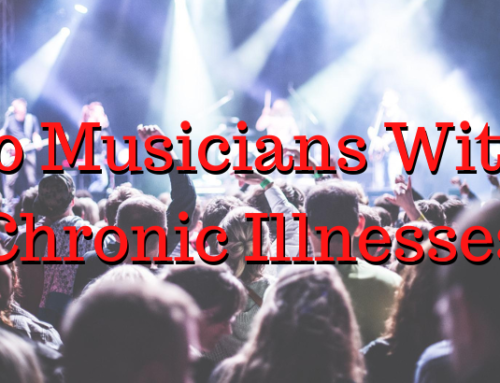If I had to guess, I’d say you’ve probably been affected by the opioid crisis in some way: I don’t know a single person who hasn’t been. Maybe you’ve got a relative who’s battling opioid addiction. Perhaps you’ve lost a friend or loved one in the past. Or maybe you’ve even struggled with addiction yourself.
For me, it’s all of the above. Many of you know my personal story, so I won’t go into too much detail here. I’ll just mention that I was addicted to opioids for over a decade before finally getting clean around the time my son was born about fifteen years ago.
And my extended family is no stranger to substance abuse. Right now I’ve got several relatives battling opioid-and-other addictions. Fortunately, they’re all still alive. But sadly, I can’t say the same for several friends who are no longer with us.
One of those friends was a young woman named Trista Laura. She’s been gone for over fifteen years, yet it’s rare for a day to go by where I don’t think about her for at least a moment. Trista and I weren’t lovers: we were just friends, though that word barely seems strong enough. I’ve been fortunate enough to have a lot of great friends over the years, but very few have been on her level.
I met Trista when I got a job working at McDonald’s shortly after my sixteenth birthday. We hit it off immediately. Her and I worked together in the grill area out back. This had two major advantages over working up front or in drive-thru: 1. We didn’t have to deal with the often-rude customers, and 2. We got to stuff our faces with lots of yummy McDonald’s food when the manager wasn’t looking.

White swans symbolize beauty, love, grace, and purity.
Our favorite snack was as simple as it was delicious. The process was easy:
- Take one chicken nugget and one piece of American cheese
- Wrap the cheese around the nugget
- Eat in one – sometimes two – bites
- Repeat several times every shift
Me, Trista, and some of the other employees had so much fun at McDonald’s, it hardly seemed like a job. We got our work done, but always had a blast doing it.
Outside of work, Trista and I liked to hang out a lot. Sometimes we’d just chill at her house and watch TV. Other times, we’d ride around smoking weed, listening to music. Or if there was a party going on somewhere, we’d check it out. In fact, that’s how I ended up getting my first tattoo.
“Hello?” she answered.
“Hey, Trista,” sixteen-year-old me said through the phone, nearly tripping over its long cord. I glanced down at my Motorola pager. “I got your page. What’s up?”
“This dude is having a tattoo party at his apartment tonight. Wanna go?”
“That sounds awesome. I’d love to. But I have no way of getting there.”
“I can pick you up,” Trista suggested. “I’ve got my mom’s car for the night.”
“Cool,” I replied. “But I don’t really have any money so I won’t be able to get a tattoo.”
“I’ve got a little extra cash. I’ll pay for you to get one. We’ll both get one.”
“Okay. Sweet!” I replied. “You’re the best!”
“Pick you up in twenty?” she asked.
“Sounds good!”
That’s the story of how I got my first tattoo. And it’s just one of many stories I could tell that highlight Trista’s generosity. To this day she remains one of the kindest, most caring and compassionate people I’ve ever known. Always smiling and overflowing with love, I can’t recall Trista ever saying a single negative thing about anyone.
Her and I worked at McDonald’s for about two years. Then in our late teens, we drifted apart for a while. I started playing guitar for a recently signed rock band and would spend the next couple years traveling the country on tour. It was during those years that I started heavily using opioids.
In my early twenties, I quit the band. And shortly after I did, Trista and I reconnected. We discovered that we’d each independently developed a fondness for – and an all-out addiction to – opioids. In the past, her and I had spent a lot of time partying: drinking 40s of Olde English, smoking fat joints, chugging Mad Dog 20/20. You know, innocent teenage fun. But hard drugs had no part in our partying back then.
Now that we were in our twenties, hard drugs dominated both our lives. Trista had lost a lot of weight, which she was happy about. Even during the worst of times, she still managed to keep smiling, giving off that same radiant glow.
 Over the next several years, Trista and I would hang out every few months. Unlike most of my other friendships at the time, ours didn’t revolve around drugs. Sure, we’d occasionally share whatever pills and powders we happened to be in possession of. But it wasn’t the focus of our relationship. It wasn’t why we hung out. Most of the time we just liked hanging out and being goofy together.
Over the next several years, Trista and I would hang out every few months. Unlike most of my other friendships at the time, ours didn’t revolve around drugs. Sure, we’d occasionally share whatever pills and powders we happened to be in possession of. But it wasn’t the focus of our relationship. It wasn’t why we hung out. Most of the time we just liked hanging out and being goofy together.
By the time Trista and I got into our mid-twenties, we were both in rough shape. I don’t know who was skinnier at the time. Both of us looked like pale skeletons. She moved in with her boyfriend one town over. Shortly thereafter, I moved in with my girlfriend (and eventually my son’s mother) a town over in the opposite direction.
Over the next year, Trista and I only saw each other once. Between my girlfriend and drug habit, I didn’t have time for much else. I don’t remember exactly what Trista and I did the night we hung out, but it involved driving around, talking, and laughing. When I dropped her off at home, she gave me a tight hug and a quick peck on the lips – our usual goodbye ritual.
Little did I know that’d be the last time I’d ever see my dear friend.
I continued to spiral downward over the next several months. My addiction, my health, my finances: they were all falling apart – and fast. But two things happened in 2006 that would change the trajectory of the rest of my life. The first was a phone call I got from my friend Kim who was also friends with Trista.
Kim’s the one who gave me the news. I couldn’t believe it. Actually, that’s not true: I could believe it. I just didn’t want to. Trista wasn’t the first friend I’d lost to drugs – or the last, for that matter. I knew that death could be a very real consequence of our drug use. But I struggled to accept that it’d actually happened to one of the sweetest people I’d ever known.
The second life-altering piece of news came a couple months later. My then-girlfriend informed me that I was going to be a father.
Between Trista’s death and my girlfriend’s pregnancy, something shifted inside me. I’d been wanting to get off hard drugs for years and made several failed attempts to do so. But now I was ready – really ready. I had all the motivation I needed to start digging myself out of the hole I’d spent the previous decade getting myself into.
It wasn’t easy but I did it. Finally, after more than a decade of struggling, I broke free of my opioid addiction. And my life has been a million-times better because of it.
But Trista wasn’t so lucky. And neither were the millions of others who have fatally overdosed on opioids.
 For them, all we can do is keep their memories alive and try to channel our grief into positive things. And that’s exactly what I’ve tried to do for Trista. I’ve done my best to live a happy life free from opioids because she’ll never get the chance to do so. I’ve kept her in my thoughts and shared stories about her with anyone who will listen. I even put my heart and soul into writing a song about how much I still miss her even after all these years.
For them, all we can do is keep their memories alive and try to channel our grief into positive things. And that’s exactly what I’ve tried to do for Trista. I’ve done my best to live a happy life free from opioids because she’ll never get the chance to do so. I’ve kept her in my thoughts and shared stories about her with anyone who will listen. I even put my heart and soul into writing a song about how much I still miss her even after all these years.
White Swan is for and about Trista. Really, it’s about any good, kindhearted person who’s life has been lost to drug addiction. Historically, white swans have symbolized grace, beauty, love, and purity. And Trista was one of the kindest, most loving people I’ve ever known – a white swan, for sure.
Of all my songs, this one has been the most emotional both to write and perform. But, aside from maybe Behcet’s Song (You’re Not Alone), it has been the most fulfilling.
Trista loved music. We spent countless hours together listening to everything from gangsta rap to heavy metal. To this day, certain songs still conjure up vivid images of Trista in my mind. Blue (Da Ba Dee) by Eiffel 65, for example, reminds me of the time we were sitting in her car smoking a joint and it came on the radio. Neither of us had ever heard it before. We just looked at each other through the smoke-filled cab and laughed our asses off.
If you’re only going to listen to one of my songs, make it White Swan. With Trista gone, all that remains are memories. And every time someone hears the song, her memory lives on a little longer.
She really was one of the sweetest, kindest, most-compassionate people you could ever hope to meet. As sad as I am that she’s gone, I’m just thankful that I got to spend the time with her that I did.

Trista Marie Laura, June 1980 – May 25, 2006
White Swan is available on all major streaming platforms. Have you lost someone close to an opioid overdose? Feel free to share your story in the comments section at the bottom.
Join the Ellis Michaels mailing list to stay up to date with news, new releases, and more.








Leave a Reply